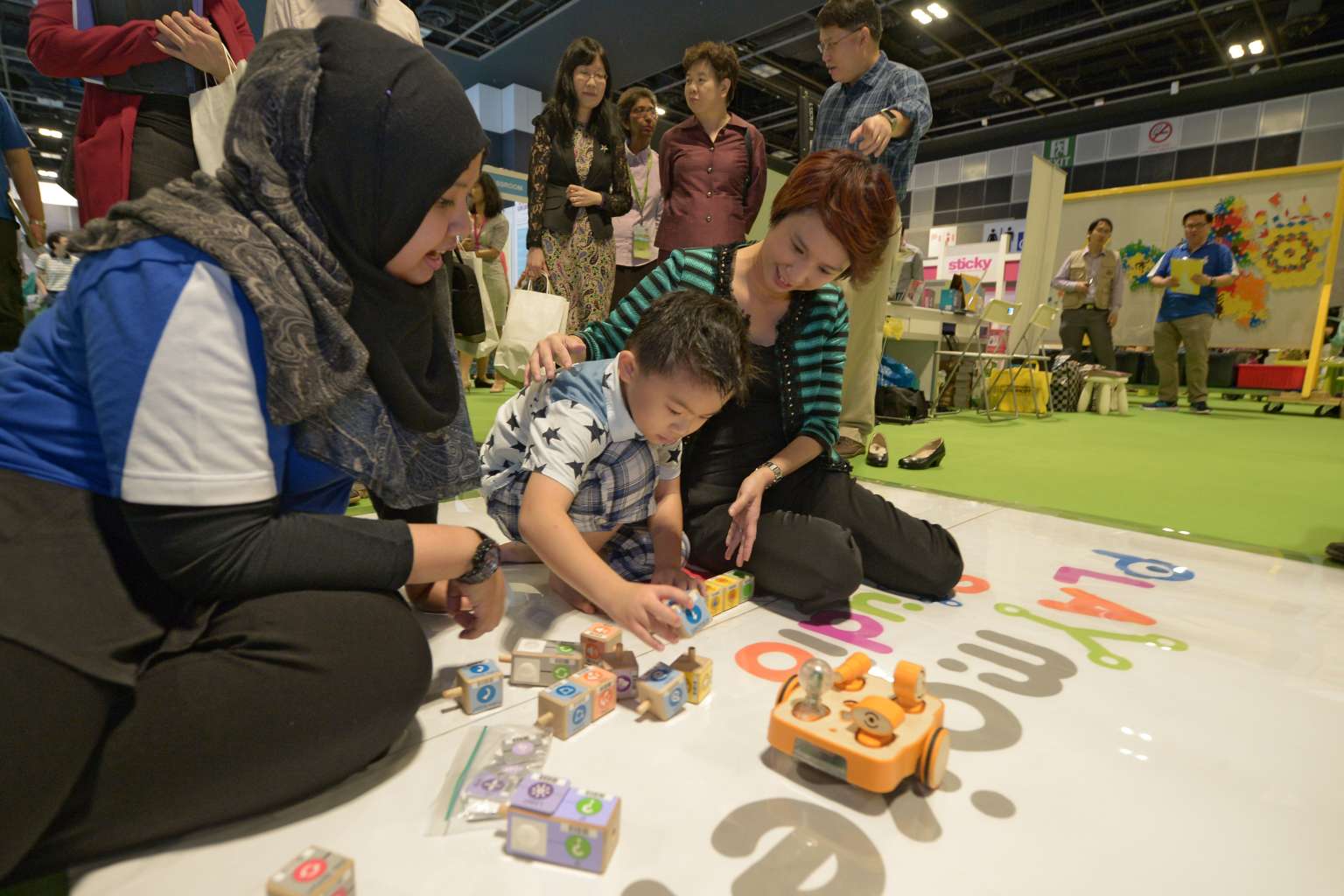New manpower plan for pre-school sector launched, including skills-focused initiatives
Sign up now: Get ST's newsletters delivered to your inbox

Parliamentary Secretary, Ministry of Education and Ministry of Trade and Industry, Ms Low Yen Ling and six-year-old Teo Cheng Wei (centre), playing Kibo, a robot programmed to move according to action commands during the Early Childhood Conference 2016.
ST PHOTO: MARCUS TAN
SINGAPORE - To give people more opportunities to join the pre-school sector and develop their careers, two new skills-focused initiatives were launched on Saturday (Oct 1).
One new initiative is the Skills Framework for Early Childhood Care and Education, which is the second of about 30 that will be rolled out for different sectors over the next few years, as part of the nationwide SkillsFuture movement.
In addition, to allow more opportunities for career progression, admission criteria for training courses will be made more flexible such that an educator with prior learning and working experience could also be admitted, even if he had not attained the required qualifications.
These initiatives are part of a new manpower plan for the pre-school sector, with which the Government hopes to attract 4,000 more educators by 2020, up from 16,000 today. This comes at a time when the sector has been expanding, with 1,700 pre-schools last year, up from 1,200 in 2008. The sector is expected to grow further, due to rising demand for pre-school services.
The manpower plan was announced by Minister for Social and Family Development Tan Chuan-Jin at the annual Early Childhood Conference held at Suntec Singapore Convention and Exhibition Centre.
The skills framework is a structured guide to help staff - including leaders, teachers and "educarers" who care for younger children - chart their career progression. It spells out career pathways and the skills required for various job roles. It was developed by the Early Childhood Development Agency (ECDA) and Singapore Workforce Development Agency (WDA), with educators, employers, education and training institutions, among others.
Prior learning and working experience will also be recognised for admission into training courses. These alternative admission criteria will be piloted at two training institutes from April next year (2017).
The ECDA said quality will not be compromised as there are still requirements for people who enter these courses via alternative ways - candidates must have relevant work experience and go through an interview. Selected candidates will also need to pass pre-requisite modules before being admitted.
Other initiatives under the manpower plan include:
* From next year, childcare centres will be allowed to close for an additional half-day, on top of the current five and a half days allowed. With this, ECDA hopes all pre-schools will give educators a day off on Teachers' Day, to give them more respect and recognition.
* Three existing early childhood training courses will be offered as "place-and-train" courses, such that participants can undergo training while working and earning a salary.
* ECDA is working with the Association of Early Childhood and Training Services (Assets) and the Infocomm Media Development Authority to identify "smart solutions" which will help pre-schools leverage technology to manage resources and improve productivity on administrative tasks. Pre-schools can choose to adopt these, and get government funding of up to 70 per cent.


